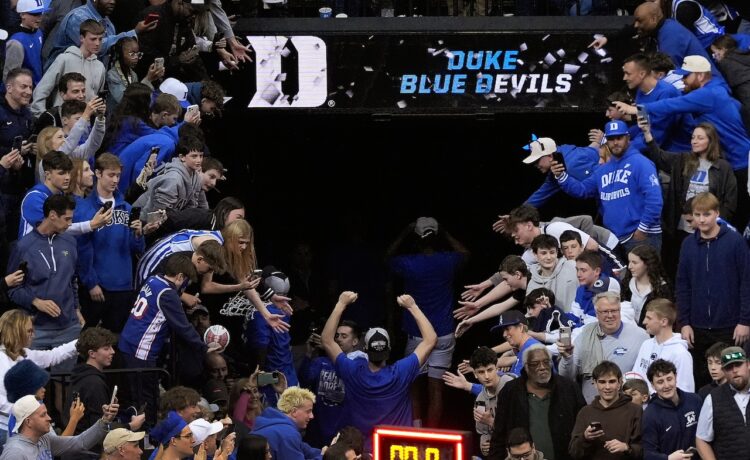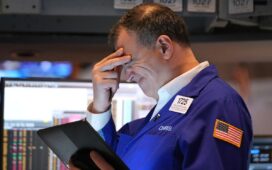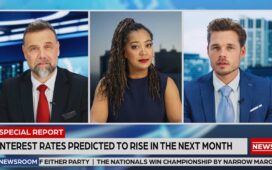Kalshi, a leader in predictions market wagering, has sued regulators in the states of New Jersey and Nevada after each served the company a cease-and-desist letter for its NCAA Tournament predictions market forecasts Monday.
Kalshi rolled out its prediction forecasting for both the NCAA men’s and women’s basketball tournaments March 17. The controversial rollout, which empowered users of its Robinhood app to buy shares in how likely/unlikely certain outcomes were to play out, was available to adults 18+ in all 50 states and Washington, D.C.
That led New Jersey’s Department of Gaming Enforcement and the Nevada Gaming Commission to serve Kalshi to block its service within the state’s borders. That led to Robinhood blocking predictions for users in New Jersey, where this weekend’s East Regional tournament was played.
Kalshi’s countersuit alleged that its predictions markets are verified at the federal level.
“Both states have issued cease and desist orders that fundamentally misunderstand prediction markets and undermine the foundation of U.S. financial markets, which are regulated by the federal government,” Kalshi CEO Tarek Mansour posted on X (formerly Twitter) on Sunday. “We have made every effort to engage proactively with both Nevada and New Jersey and try to educate them about prediction markets, how they are regulated, and how critical they are… but our words fell on deaf ears
”I can’t speak to why they are taking this action, but prediction markets have proven their use, so it is a shame that these authorities are still trying to censor them.”
Kalshi March Madness prediction markets available in all 50 states
Robinhood had outsourced its predictions forecasting to Kalshi, which is the industry standard for those interested in predictions-based markets. Kalshi offers betting-like activity where users can trade on outcomes in politics, weather, culture, economics and now sports.
But taking predictions on the latter has been a thorn in Kalshi’s side. Opponents argue that what Kalshi and Robinhood are doing amounts to unregulated legal “sports betting” in all 50 states.
Operators who pay millions in fees annually to regulators in order to take wagers are up in arms over it, while states are weary because of its unregulated nature.
Nevada blocked Robinhood’s initial foray into sports predicting by sending a cease-and-desist ahead of its initial rollout for the Super Bowl.
But even though Kalshi continues to hit dead ends with sports betting, Mansour continues to try.
“As promised, Kalshi will keep fighting for the right of prediction markets to thrive,“ Mansour said. ”With trust in traditional institutions at an all-time low, people are turning to prediction markets at an astronomical pace. The growth of the ecosystem in the last year is a testament to how important they have become to the American people.
“We need prediction markets. … now, more than ever.”
Kalshi responds with Responsible Gambling plan
Part of the blowback against Kalshi from governments is the lack of systems in place for responsible gaming. When states pass legislation they also ensure there are protections in case players fall victim to the habit-forming nature of betting.
But Kalshi recently rolled out a Customer Protection Hub that offers protections to players like deposit maximums, voluntary opt-outs and cooldown periods for trading.
“These safeguards work in addition to our internal market surveillance team and regulation systems to improve our market integrity,” Mansour posted on X after it was unveiled March 24. “We hope that our Hub sets a new standard of customer protection for the industry and encourages others to follow suit.”




